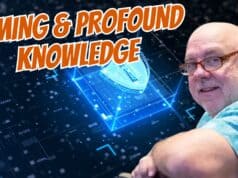A poignant story showed up in the Washington Post during the recent GM strike that hits at the heart of the principle of respect for people. It came from the Saturn plant in Spring Hill, Tennessee. Management, required to work during the strike, gave their friends, their union hourly workers, rides to the picket line. They delivered hot coffee and donuts. They showed that respect for people is alive in well at the real Saturn, despite the fact that Spring Hill, home of the “different kind of car company” doesn't even assemble cars any more.
Today, most of Saturn's products are now designed in Europe by GM's Opel division and built on the same lines as every other GM vehicle. Surprisingly, the article showed that while the vision of Saturn's founding died in a boardroom in Detroit, there still is something unique in Spring Hill. If only the culture had become a model for the rest of the company, rather than a short-lived “experiment”, the strike, and GM's current condition, might not have come to pass.
When I was a youngster growing up in Ford country on Detroit's west side in the early 1980s, we heard a lot of buzz about the “new car company” that GM was starting in Tennessee. A few folks even made the move, leaving Detroit behind and moving south to be a part of it. By the time of Saturn's anti-climatic launch in 1990, the Ford die-hards felt like we had the last laugh. While GM had spent 10 years and billions of dollars creating a new division to build and sell small cars to compete with the Japanese, Ford took a different approach.
CEO Don Petersen, under the influence of weekly meetings with Deming, rebuilt the company from within. A team philosophy was adopted across the company. On the product side, they introduced vehicles that met the market's desires. Production teaming at the plant level improved quality and reduced costs. Escort and Taurus took the crown as best sellers while Motor Trend Car of the Year awards flowed in year after year. During the late 1980s and early 90s, Ford racked up market share almost as fast as the Japanese, and ironically, they did so with techniques and philosophies that GM said couldn't be done in their existing plants.
So what happened? What happened to Saturn, the noble experiment? What happened in Dearborn to Don Petersen's “Better Idea“? The same thing, I suppose that happened to Wiremold. Deming's “constancy of purpose” lasts only as long as leadership believes in it.
Before we get all depressed, I'd have to say that the stories of Ford in the '80s and Saturn during the strike of 2007 give me a glimmer of hope. Ford showed, during that brief bit of history, that even an old dinosaur could have new life with the right leadership. And the Spring Hill plant shows that respect for people, once established, endures, even when management doesn't know how to make the most of it. With a bit of persistence, perhaps someday we'll be able to say that we had an opportunity to work at a place like that.
What do you think? Please scroll down (or click) to post a comment. Or please share the post with your thoughts on LinkedIn – and follow me or connect with me there.
Did you like this post? Make sure you don't miss a post or podcast — Subscribe to get notified about posts via email daily or weekly.
Check out my latest book, The Mistakes That Make Us: Cultivating a Culture of Learning and Innovation:









